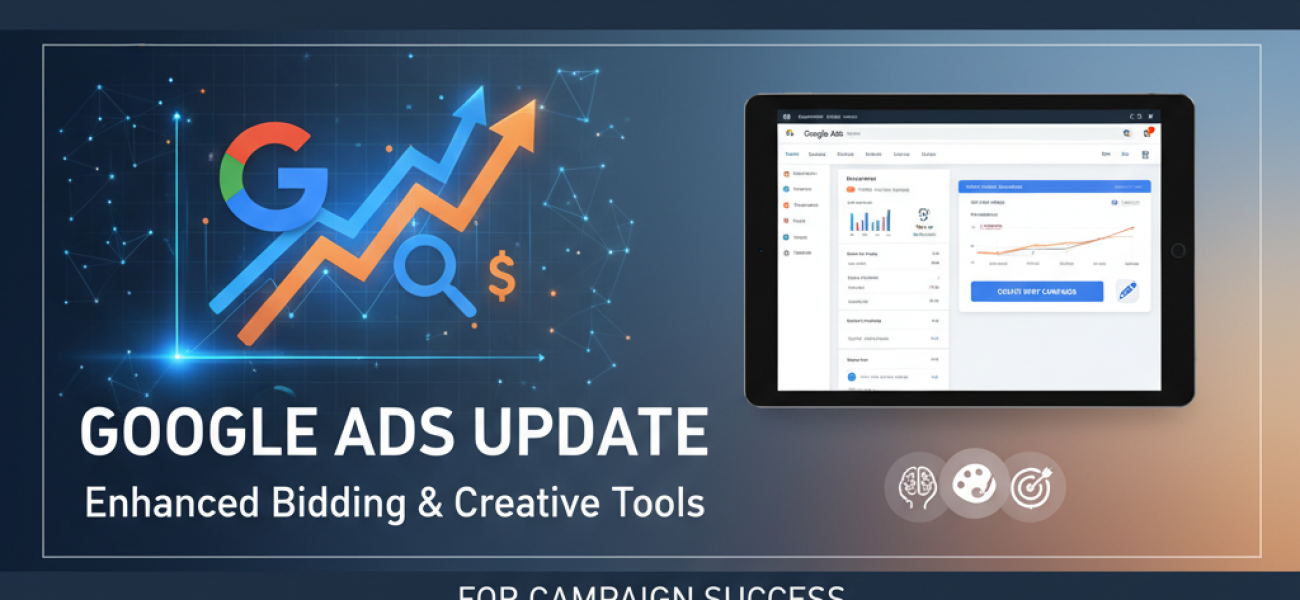The Google Ads update for this October highlights significant advancements in automated bidding and creative capabilities, aiming to empower digital marketing campaigns with enhanced performance insights and actionable tools. As digital advertising evolves, these new features promise to streamline campaign management and improve return on investment, especially in competitive seasonal periods.
Understanding the Google Ads Update: Key Features and Benefits
The primary focus of this Google Ads update is the rollout of enhanced bidding optimizations combined with innovative creative tools targeting YouTube campaigns. By leveraging automation and AI marketing techniques, these features allow advertisers to set smarter bids dynamically, optimizing budget allocation to maximize reach and conversions.
Previously, advertisers faced challenges balancing manual bid adjustments with real-time fluctuations in audience behavior. The new bidding enhancements utilize machine learning algorithms that continuously analyze myriad variables, including user intent signals and contextual data, to fine-tune bids efficiently. This leads to improved campaign performance and stronger ROI.
“Automation enables marketers to respond swiftly to market demands, especially during high-volume periods like holidays,” explains digital marketing strategist Karen Liu. “Google’s update integrates AI to reduce guesswork and optimize campaigns through data-driven insights.”
Complementing bidding upgrades, creative tools introduced in this update facilitate more engaging and adaptable ad formats on YouTube. This means advertisers can test different creative elements seamlessly, adjusting visuals and messaging based on real-time audience interactions and feedback.
How Automation and AI Marketing Enhance Campaign Outcomes
Automation and AI marketing are transforming the digital advertising landscape by delivering real-time optimization and predictive capabilities to campaigns. The Google Ads update utilizes these technologies not only to improve bidding strategies but also to accelerate creative development and deployment.
One of the key advantages of automation is reducing the manual workload associated with campaign adjustments, enabling marketers to focus on strategic decisions rather than routine tasks. Additionally, AI-driven analytics provide deeper insights into user behavior, allowing for hyper-targeted content that resonates with specific audience segments.
For instance, AI-powered tools within the Google Ads platform can suggest bid adjustments based on forecasted demand, competitive trends, and performance data. This predictive approach ensures budgets are allocated efficiently, enhancing campaign effectiveness during peak advertising periods.
Real-World Applications and Campaign Performance Improvements
Consider a retail brand preparing for the holiday shopping surge. By applying the updated bidding optimizations, the brand can automatically increase bids on high-performing YouTube placements while decreasing spend on underperforming demographics. This responsive adjustment maximizes impact without overspending.
Moreover, the creative tools enable rapid A/B testing of ad variations, providing insights that help refine messaging for better engagement. Combined, these enhancements create a feedback loop that continuously improves campaign outcomes, driving stronger results in competitive environments.
Integrating Slack Alerts for Proactive Campaign Management
An additional benefit seen in advanced Google Ads workflows is the integration of Slack alerts, which notify marketing teams of critical updates about campaign performance or significant changes triggered by automation systems. This feature supports timely decision-making and collaborative problem-solving in dynamic advertising contexts.
By receiving instant notifications when optimization thresholds are met or certain KPIs are at risk, teams can react promptly to maintain campaign efficiency. Tools like Adsroid exemplify how third-party platforms leverage Slack alerts to enhance campaign monitoring and provide real-time actionable insights within digital marketing workflows.
Marketing consultant David Reyes notes, “Slack alerts bridge the communication gap between automated systems and human teams, ensuring continuous alignment on advertising goals and swift response to performance anomalies.”
Staying Updated with Advertising News for Competitive Advantage
In the fast-paced world of digital marketing, staying informed about updates like Google Ads’ latest innovations is crucial for maintaining a competitive edge. Industry blogs, official Google resources, and platforms such as Adsroid offer valuable information and tools to help marketers adapt quickly.
For those interested in exploring the full details of the October update, the official announcement can be accessed via https://goo.gle/4hmhrai. Regularly reviewing such advertising news helps marketers anticipate trends, optimize campaign strategies, and utilize new features effectively.
Conclusion: Leveraging Google Ads Update for Maximum Impact
The recent Google Ads update with enhanced bidding optimizations and creative tools marks a significant stride in supporting digital marketing success, especially on video platforms like YouTube. Through automation and AI marketing, advertisers can boost campaign performance and streamline operations during critical periods.
Integrating these capabilities with communication tools like Slack alerts further enhances responsiveness and collaboration, empowering marketing teams to make data-driven decisions rapidly. Staying current with advertising news and embracing innovations is essential for those seeking to maximize advertising effectiveness in a constantly evolving landscape.


